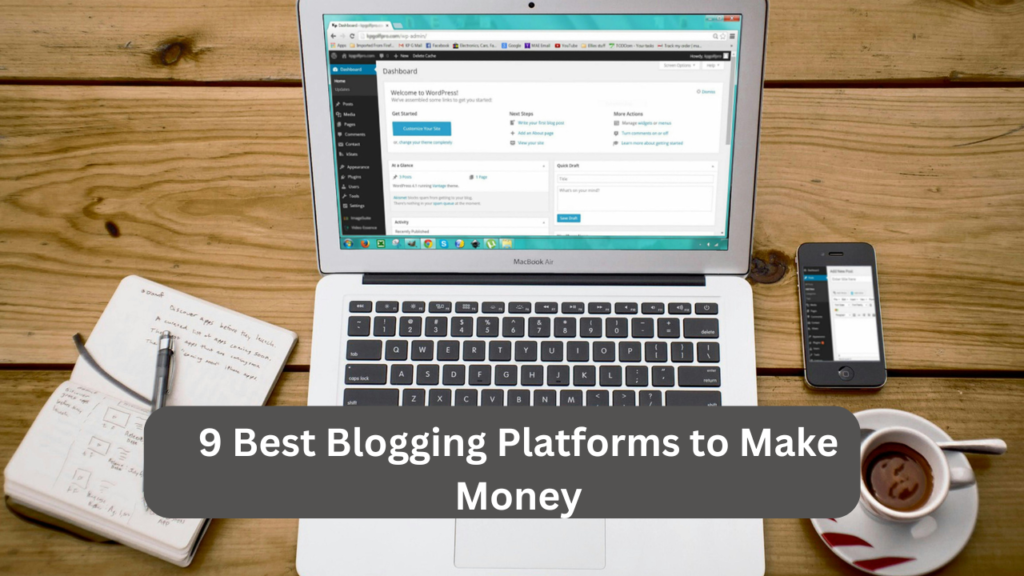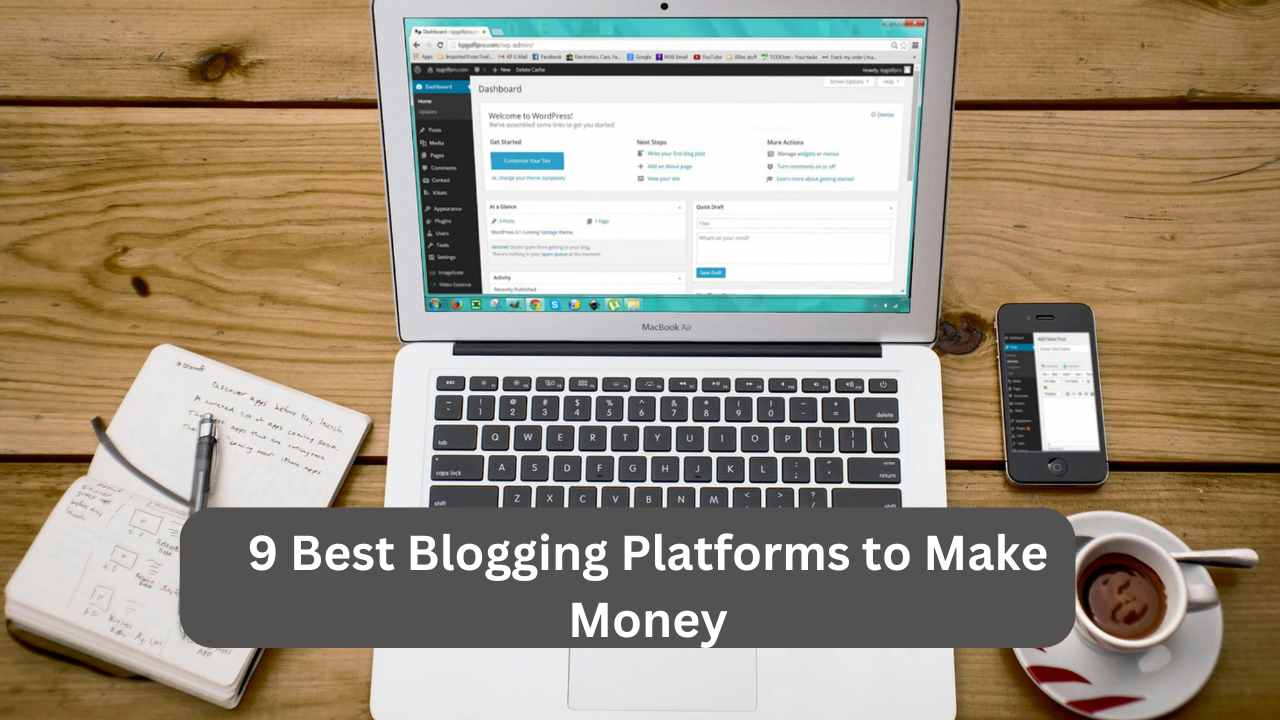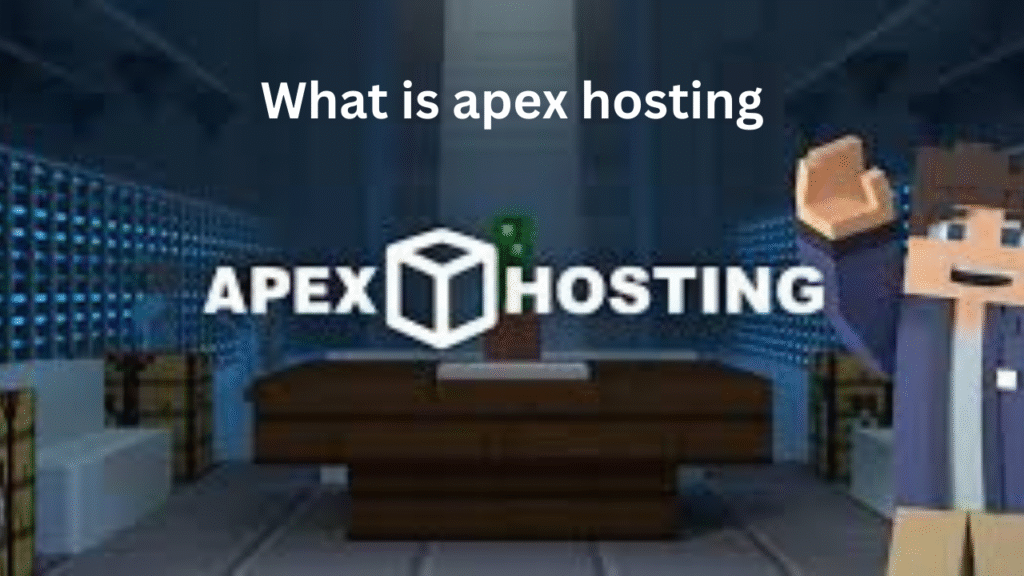9 Best Blogging Platforms to Make Money
Introduction
9 Best Blogging Platforms to Make Money – Blogging has become one of the most effective ways to make money online, but choosing the right platform is crucial to your success. With countless options available, it can be challenging to determine which one offers the best features, customization, and monetization opportunities. In this article, we will explore the nine best blogging platforms to help you make an informed decision and start earning from your blog.
1. WordPress.org
Overview and Popularity
WordPress.org is the most popular blogging platform, powering over 40% of all websites on the internet. Known for its flexibility and extensive customization options, WordPress.org is a self-hosted platform that provides full control over your blog’s appearance and functionality.
Key Features
Customization Options
WordPress.org offers an unparalleled level of customization. With thousands of themes and plugins available, you can tailor your blog to meet your specific needs and preferences. Whether you want a simple blog or a complex website, WordPress.org can accommodate your vision.
Plugins and Themes
The extensive library of plugins and themes allows you to enhance your blog’s functionality and design. Plugins can add features like SEO optimization, social media integration, and e-commerce capabilities, while themes can give your blog a professional and unique look.

Monetization Options
Advertising
WordPress.org makes it easy to integrate advertising networks like Google AdSense, allowing you to earn money from ads displayed on your blog.
Affiliate Marketing
Promote products and earn commissions through affiliate marketing. Many WordPress plugins can help you manage affiliate links and track earnings.
E-commerce
Using plugins like WooCommerce, you can turn your blog into an online store, selling products and services directly to your audience.
Membership Sites
Charge users for premium content by creating a membership site. Plugins like MemberPress can help you set up and manage memberships, subscriptions, and paywalls.
SEO Capabilities
WordPress.org is renowned for its SEO capabilities. With plugins like Yoast SEO, you can optimize your content for search engines, improving your blog’s visibility and ranking.
How to mass delete emails on Gmail
2. Blogger
Overview and Ease of Use
Blogger, owned by Google, is a free and straightforward blogging platform ideal for beginners. Its simplicity and seamless integration with Google services make it a popular choice for new bloggers.
Key Features
Integration with Google Services
Blogger integrates effortlessly with Google services like AdSense, Analytics, and Search Console, making it easy to manage your blog and track its performance.
Simplicity for Beginners
Blogger’s user-friendly interface requires no technical skills, allowing you to set up and manage your blog with ease.
Monetization Options
Google AdSense
Monetize your blog by displaying ads through Google AdSense. Blogger makes it simple to apply for and manage AdSense ads.
Affiliate Marketing
Incorporate affiliate links into your blog posts to earn commissions from product promotions.
3. Medium
Overview and Unique Selling Proposition
Medium is a platform designed for writers who want to focus on content creation without worrying about technical aspects. It offers a built-in audience and a clean, distraction-free interface.
Key Features
Built-in Audience
Medium’s established readership can help your content reach a wider audience without the need for extensive promotion.
Clean Interface
The platform’s minimalist design allows you to concentrate on writing, ensuring that your content takes center stage.
Monetization Options
Medium Partner Program
Earn money based on the engagement time of Medium members with your content. The more people read and interact with your articles, the more you can earn.
Memberships
Offer exclusive content to paying subscribers, providing an additional revenue stream.
4. Wix
Overview and User-Friendly Interface
Wix is a versatile website builder with a drag-and-drop interface, making it incredibly easy to use. It’s ideal for those who want to create a visually appealing blog without any coding knowledge.
Key Features
Drag-and-Drop Builder
Wix’s intuitive builder allows you to create and customize your blog by simply dragging and dropping elements onto your pages.
Design Templates
Choose from hundreds of design templates to give your blog a professional look that matches your brand.
Monetization Options
Ads
Use Wix’s ad integration options to display ads on your blog and generate revenue.
Affiliate Marketing
Promote products and services through affiliate links to earn commissions.
E-commerce
Sell products directly from your blog using Wix’s built-in e-commerce tools.
5. Squarespace
Overview and Design Focus
Squarespace is known for its beautiful design templates and user-friendly interface. It’s a great option for creatives and businesses looking for a professional-looking site.
Key Features
Beautiful Templates
Squarespace offers a range of stunning templates that are perfect for creating a visually appealing blog.
Integrated E-commerce Tools
Sell products and services directly from your blog using Squarespace’s built-in e-commerce features.
Monetization Options
Selling Products
Use the integrated e-commerce tools to sell physical or digital products directly from your blog.
Membership Sites
Create a membership site to offer exclusive content to paying subscribers.
Affiliate Marketing
Monetize your blog by promoting products and earning commissions through affiliate marketing.
6. Substack
Overview and Newsletter Focus
Substack is a platform focused on email newsletters, allowing writers to build a subscription-based audience. It’s perfect for those who prefer direct communication with their readers.
Key Features
Email Subscription Model
Substack’s model revolves around email subscriptions, enabling you to build a direct relationship with your audience.
Easy Setup
Setting up a Substack newsletter is straightforward and doesn’t require any technical skills.
Monetization Options
Subscriptions
Charge readers for premium newsletter content, providing a steady stream of income.
Paid Newsletters
Offer exclusive content to paying subscribers, increasing your revenue potential.
7. Ghost
Overview and Professional Focus
Ghost is a powerful platform designed for professional publishers. It’s fast, secure, and highly customizable, making it an excellent choice for serious bloggers.
Key Features
Speed and Security
Ghost is known for its fast performance and robust security features, ensuring a smooth and safe user experience.
Customization Options
With Ghost, you have extensive customization options to create a blog that fits your needs and preferences.
Monetization Options
Memberships
Ghost’s built-in membership features allow you to monetize your content by charging for access to premium content.
Subscriptions
Set up subscription plans to generate recurring revenue from your readers.
E-commerce
Sell digital products or services directly from your blog.
8. Weebly
Overview and Beginner-Friendly Approach
Weebly is another easy-to-use platform with a drag-and-drop builder. It’s great for beginners who want to set up a blog quickly and without hassle.
Key Features
Drag-and-Drop Builder
Weebly’s builder allows you to create and customize your blog easily by dragging and dropping elements.
Templates
Choose from a variety of templates to design a blog that looks professional and appealing.
Monetization Options
Ads
Integrate ad networks into your Weebly blog to earn money from advertisements.
Affiliate Marketing
Use affiliate links to promote products and earn commissions from sales.
E-commerce
Sell products through your blog using Weebly’s built-in e-commerce tools.
9. Typepad
Overview and Professional Use
Typepad offers a user-friendly blogging platform with a range of customization options. It’s particularly popular among professional bloggers.
Key Features
User-Friendly Interface
Typepad’s interface is designed to be easy to use, allowing you to manage your blog with ease.
Customization Options
Customize your blog’s design and functionality with a variety of themes and plugins.
Monetization Options
Advertising
Integrate ad networks to display ads on your blog and earn revenue.
Affiliate Marketing
Promote products through affiliate links to generate income.
Subscription Services
Offer premium content to subscribers for a fee, providing an additional revenue stream.
Choosing the Right Platform
Factors to Consider
Ease of Use
If you’re a beginner, platforms like Wix, Blogger, and Weebly offer user-friendly interfaces that make it easy to get started.
Customization
For those looking for extensive customization, WordPress.org and Ghost provide the flexibility to create a highly personalized blog.
Monetization Potential
Consider the monetization options available on each platform. WordPress.org and Squarespace offer the most comprehensive options, including ads, affiliate marketing, and e-commerce.
Comparison of Platforms
- WordPress.org: Best for extensive customization and comprehensive monetization.
- Blogger: Ideal for beginners and simplicity.
- Medium: Perfect for writers focused on content creation.
- Wix: Great for visually appealing blogs with no coding.
- Squarespace: Best for design-focused blogs.
- Substack: Excellent for newsletter-based blogs.
- Ghost: Ideal for professional publishers.
- Weebly: User-friendly for beginners.
- Typepad: Suitable for professional bloggers with customization needs.
Conclusion
Choosing the right blogging platform is essential for monetizing your blog effectively. WordPress.org stands out for its versatility and extensive monetization options, making it the top choice for many bloggers. However, platforms like Blogger, Medium, and Substack offer unique features that may appeal to specific types of bloggers. Evaluate your needs, consider the features and monetization methods each platform offers, and choose the one that aligns best with your blogging objectives.
FAQs
1. Can I switch blogging platforms later? Yes, most platforms allow you to migrate your content to a different platform, although it may require some technical know-how.
2. How much does it cost to start a blog on WordPress.org? The cost includes purchasing a domain name and web hosting, which can range from $50 to $100 annually.
3. Can I monetize a free blog on Blogger? Yes, you can use Google AdSense and affiliate marketing to monetize a free blog on Blogger.
4. Is it necessary to have technical skills to use WordPress.org? While some technical skills are beneficial, many tutorials and plugins can help you manage your WordPress blog without extensive technical knowledge.
5. Which platform is best for selling products directly on my blog? WordPress.org with WooCommerce and Squarespace are excellent choices for selling products directly on your blog.


